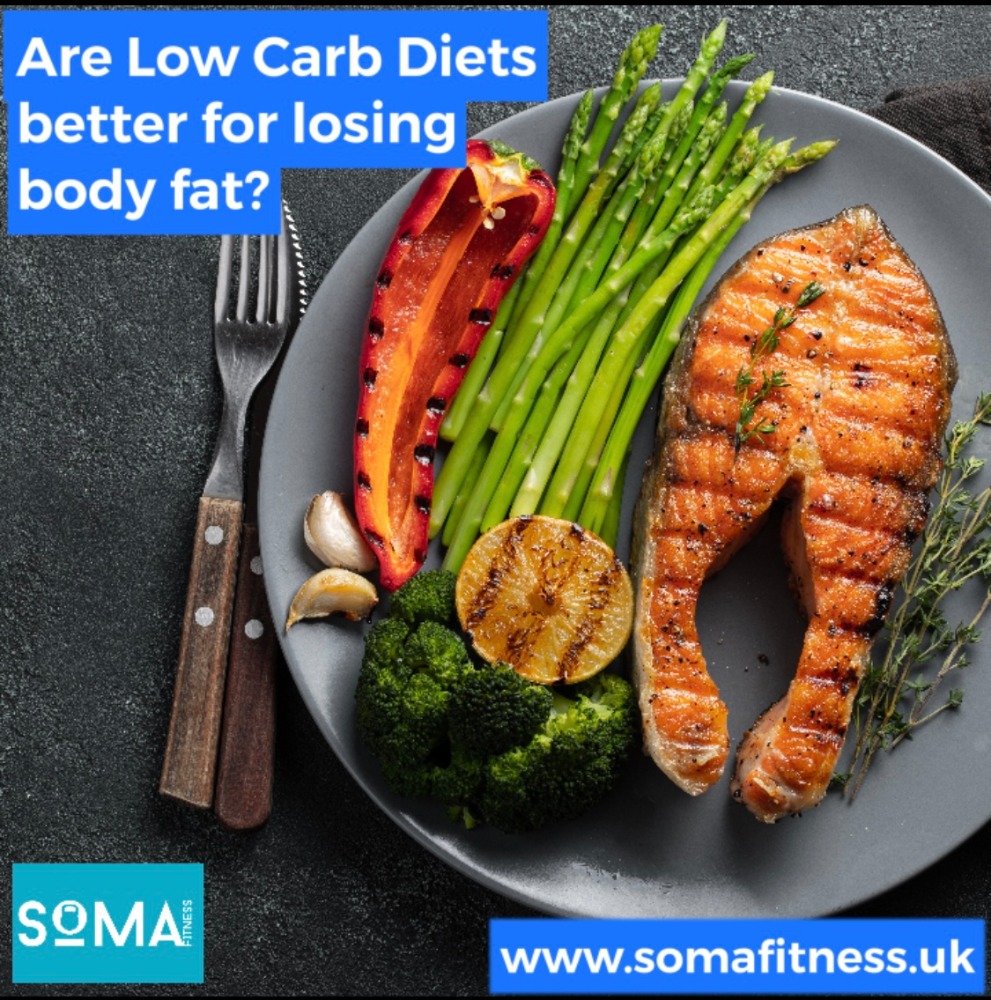Are Low Carb Diets better for losing body fat?
A common belief is that a reduction in the consumption of carbohydrates will directly result in a reduction in body fat. Generally, the rationale behind this, is that less carbohydrates in their diet will result in less insulin, the ‘fat storing hormone’, being released and thereby storing less body fat.
In the context of fat loss/gain, caloric intake is important and carbohydrate intake is not.
Although studies have shown that those who consume more sugar gain more weight (Ruanpeng et. al. 2017), these studies do not compare groups consuming high carbohydrate diets and low-moderate carbohydrate diets with equal caloric intakes.
When calorie intake is controlled, i.e. both groups consume the same number of calories, differences in weight loss are not significant. (Te Morenga, 2013)
Understanding Energy Balance:
This is because weight loss is determined by energy balance. When we consume more calories than we expend then this puts us in a calorie surplus, meaning there is an excess of calories i.e. energy. When this occurs, this surplus of energy is stored as increased weight. Other factors determine how this weight is added. For example, if protein intake is high and someone is regularly resistance training, then more of the added weight is likely to be gained as an increase in muscle tissue. However, if someone is not resistance training, protein intake is low and sleep duration and quality is poor, then the vast majority of this added weight will be an increase in fat mass.
Satiety Matters:
People often over consume on calories due to their diet involving many foods that are not satiating. This can be why people have successful results when reducing carbohydrates out of their diet, because their over consumption of calories may be due to their previous diet having many low nutrient, low satiating sources of carbohydrates, such as sweets. Where some people then go wrong, is blaming all carbohydrates such as sweet potatoes and fruit, which have been shown to be much more satiating.
Overall, selecting meals to consume on your diet when fat loss is your goal, the only significant factors should be calories, protein (amount needed will be determined by your age), satiety (how full it leaves you feeling), nutrient density (the amount of beneficial nutrients in a food) and most importantly, how much you enjoy the meal. This is because adherence to a plan is going to be crucial. If you don’t believe you can eat like this for the rest of your life then it’s simply too strict.
References:
- Ruanpeng, D., Thongprayoon, C., Cheungpasitporn, W., & Harindhanavudhi, T. (2017). Sugar and artificially sweetened beverages linked to obesity: a systematic review and meta-analysis. QJM: An International Journal of Medicine, 110(8), 513-520.
- Te Morenga, L., Mallard, S., & Mann, J. (2013). Dietary sugars and body weight: systematic review and meta-analyses of randomised controlled trials and cohort studies. Bmj, 346.


Leave a Comment
(0 Comments)